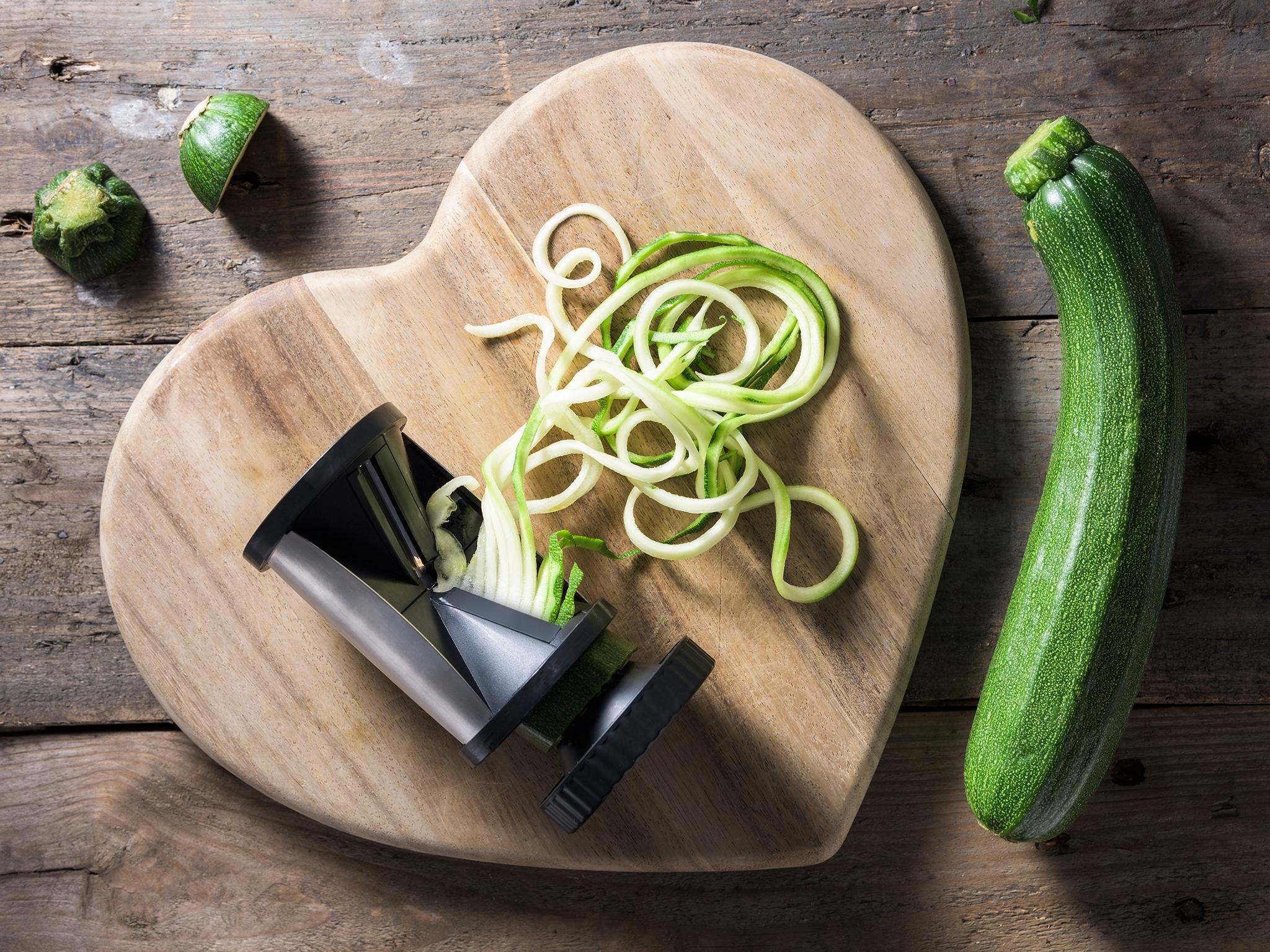Step away from the spiraliser: We need carbs and to stop labelling food 'good' and 'bad'
Curly vegetables posing as carbohydrates are everything that is wrong with food, argues Kashmira Gander

Your support helps us to tell the story
From reproductive rights to climate change to Big Tech, The Independent is on the ground when the story is developing. Whether it's investigating the financials of Elon Musk's pro-Trump PAC or producing our latest documentary, 'The A Word', which shines a light on the American women fighting for reproductive rights, we know how important it is to parse out the facts from the messaging.
At such a critical moment in US history, we need reporters on the ground. Your donation allows us to keep sending journalists to speak to both sides of the story.
The Independent is trusted by Americans across the entire political spectrum. And unlike many other quality news outlets, we choose not to lock Americans out of our reporting and analysis with paywalls. We believe quality journalism should be available to everyone, paid for by those who can afford it.
Your support makes all the difference.Spiralised vegetables make me angry. Those colourful twirls of courgette and carrot flesh may seem innocuous, but they symbolise everything wrong with how we eat.
Vegetables shredded to look like spaghetti, as well as cauliflowers pounded until they are rice-like, have popped up on supermarket shelves and are marketed as a replacement for carbohydrates.
I first realised how mad these curly imposters make me when I was asked by a press representative from a supermarket if I would like to write about their new range of zoodles (or zucchini noodles) and interview a raw food writer on how to cut out carbohydrates.
As a lifestyle writer I've had more conversations with dieticians about what to eat than Atkins devotees have had bread-free breakfasts. What has become obvious is the opacity around what we should be feeding ourselves. Because of that, there is a worldwide obesity epidemic, and chronic but preventable diseases are widespread. And it makes me really sad, not least because I have often felt genuinely lost about what I should be eating thanks to unqualified online fitness gurus and self-appointed nutritionists whose livelihoods rely on us all being confused. The idea that I could make someone else feel like that with a flimsy piece about replacing carbohydrates with watery veg is something I couldn't handle.
Part of the problem is labelling food “good” and “bad”. Pasta is “bad”, kale is “good”. Doughnuts are “bad” apples are “good”. There’s nothing healthy about linking foods to emotions. Dieting, and the ideas of "clean" and "guilty" eating, make health seem like a challenge and links specific foods with ideas of control and self-worth. It also makes health seem unattainable unless you're following the latest fad, when in reality it can be done simply and cheaply.
So I’m angry that people are being encouraged to cut an entire food group from their diets, with little food education to make an informed decision. Poor old carbohydrates are the body’s main source of energy. And they are a varied food group, which includes everything from sugar to potatoes.
Qualified dieticians stress that moderation is key. Our bodies are unique and as long as you avoid processed food as much as possible and get a balance then you're on the right track. Find a lifestyle that makes you feel as satisfied and healthy as possible and that is sustainable. Eat carbs, just acknowledge that if you eat some cheap white bread, you’re not getting as much fibre as you could with wholemeal. If you scoff a piece of cake, that’s great, just don’t eat too much and balance out the nutrients that you’ve missed elsewhere. And you can even eat spiralised veg, just don't pretend that it's going to keep you full and satisfied like wholegrain rice.
Food is so ingrained in our social lives and cultures that eating is not just about nourishing ourselves, but enjoying life a little.You can have your cake - and your zoodles - and eat them, too.
Join our commenting forum
Join thought-provoking conversations, follow other Independent readers and see their replies
Comments